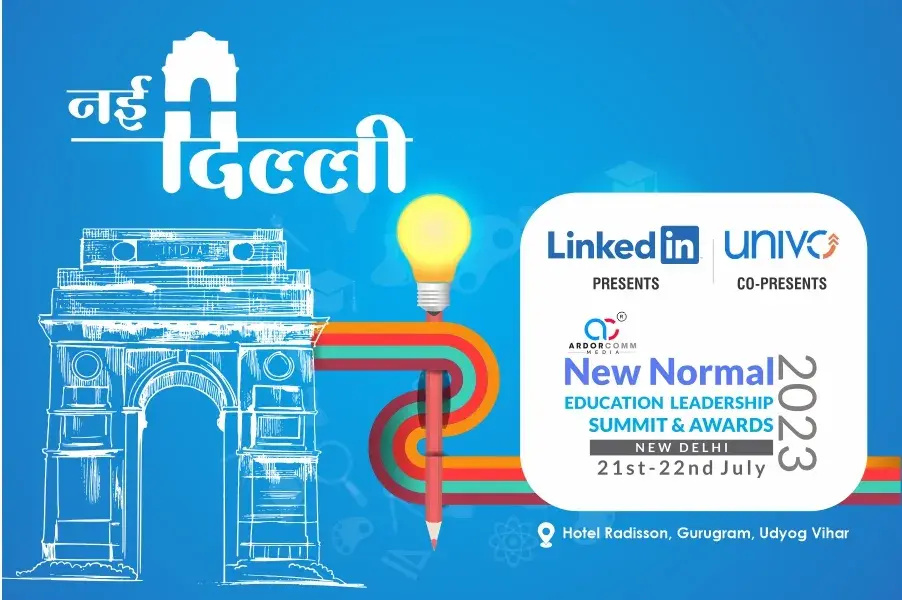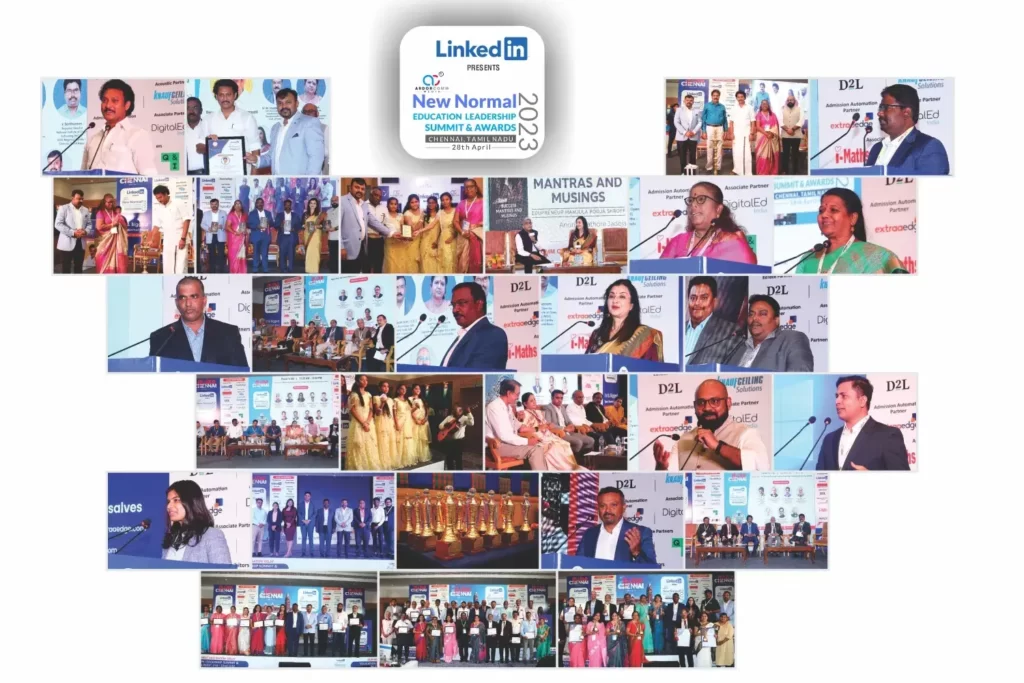ArdorComm ‘New Normal – Education Leadership Summit & Awards 2023’ #ELSANewDelhi #ELSAGurugram to be held at Gurugram, Delhi NCR on 21st & 22nd July 2023
The landscape of education in India is evolving rapidly, driven by the vision of India 2030 and the implementation of the National Education Policy (NEP) in 2023. As the nation aspires to improve education and skills in the 21st-century workplace, the “New Normal – Education Leadership Summit & Awards 2023” organized by ArdorComm Media Group in Gurugram, Delhi NCR, serves as a crucial platform to gather policymakers, government dignitaries, academicians, educators, EdTech corporates, start-ups, and industry experts. This two-day event aims to facilitate the exchange of experiences, ideas, and innovations that have propelled the growth of the education community. About New Normal – Education Leadership Summit & Awards 2023 #ELSANewDelhi #ELSAGurugram :- After consecutive Six grand successes of ArdorComm ELSA series, “New Normal – Education Leadership Summit & Awards”. We are pleased to announce yet another journey of New Normal – ELSA series in Gurugram, Delhi NCR on 21st & 22nd July 2023. The Summit theme will focus on “INDIA Vision 2030: A Move to Improve Education & Skills in 21st Century Workplace” India’s vision for 2030 is set on transforming its education system to meet the demands of the rapidly evolving 21st-century workplace. With a focus on innovation, research, and quality, the government has implemented the National Education Policy (NEP) 2023, which aims to equip students with the necessary skills and knowledge to succeed in the modern world. The “New Normal – Education Leadership Summit & Awards 2023” organized by ArdorComm Media Group serves as a crucial platform to discuss and recognize the efforts being made towards achieving this vision. The Indian education system is recognized as one of the largest in the world, with cities like Mumbai, New Delhi, Bengaluru, Pune, Chennai, Hyderabad, Dehradun, Kota, Manipal, Kanpur, Ahmedabad, Coimbatore, Visakhapatnam to name a few, known as the educational hubs of India. The government has implemented various schemes and policies to ensure that every child in the country has access to education. The vision is to position India as a global study destination that offers premium education at affordable costs. By promoting internationalization and globalization, India aims to foster collaborations with foreign institutions for research, teaching, and student exchange programs. The NEP 2023 is a pivotal step towards driving educational reforms in India. It emphasizes the development of 21st-century skills such as critical thinking, problem-solving, and entrepreneurship. The policy encourages holistic learning experiences and aims to create an environment that fosters creativity and innovation. By aligning Indian institutions with global standards of quality education, technology, infrastructure, and resources, India is emerging as a preferred destination for students seeking a world-class education. The “New Normal – Education Leadership Summit & Awards 2023” serves as a convergence point for policymakers, government dignitaries, academicians, educators, edtech companies, start-ups, and industry experts. This gathering provides an opportunity to share experiences, exchange ideas, and showcase innovations that have propelled the growth of the education community. Through collaborative efforts, stakeholders can work together to address the challenges and seize the opportunities presented by the changing education landscape. About the ArdorComm Education Leadership Awards 2023 :- One of the highlights of the summit is the prestigious “ArdorComm Education Leadership Awards 2023.” These awards aim to recognize the exceptional contributions of individuals, educational institutions, edtech companies, and start-ups that have tirelessly worked towards the development of the education sector. By honouring these trailblazers, the awards inspire and encourage others to follow in their footsteps and drive positive change in the realm of education. The event encompasses various categories, including higher education awards, school education awards, edtech awards, and startup awards. These categories acknowledge the outstanding achievements and innovations in different sectors of education. By highlighting success stories and best practices, the awards inspire others to adopt similar approaches and drive positive change in the education ecosystem. Winning a school education award, higher education award, startup award, or edtech award can not only bring recognition to your hard work and achievements, but also provide valuable networking opportunities, funding opportunities, and exposure to best practices, ultimately propelling you and your endeavours to greater success. Key Discussion Points of ‘New Normal – Education Leadership Summit & Awards 2023’ #ELSANewDelhi #ELSAGurugram :- Day 1- Higher Education New-Age Technology: A Boon to E-Learning How to Cultivate 21st Century Skills Including Critical Thinking and Digital Literacy? How can NEP 2020 can help build the Skilled Workforce? Syllabus-driven Education vs 21st Century Employability. Its Relevance & Adoptability. Future Facing Edtech to Drive Teaching-Learning Outcomes Day 2- School Education Disruptive Technologies Transforming Education in the 21st Century How NEP 2020 Policy Aims to make Education More Inclusive, Equitable, and Holistic? STEM-based learning and skill-based education, most progressive education trends Need of an Effective Early Childhood (ECE) Curriculum for a Sustainable Development Goal. Rethinking Curriculum and Pedagogy to Reflect the Accelerated use of Technology. The “New Normal – Education Leadership Summit & Awards 2023” is set to be a dynamic platform that explores various topics crucial to the advancement of education in the 21st century. Among the key discussions will be the role of new-age technology in e-learning, which has proven to be a boon in providing accessible and engaging education to learners of all ages. The integration of technology in education has facilitated the cultivation of essential 21st-century skills such as critical thinking and digital literacy, empowering students to thrive in the digital age. An important aspect of the summit will be the exploration of how the National Education Policy (NEP) 2020 can contribute to building a skilled workforce. The NEP 2020 aims to revolutionize the education system by emphasizing skill development, vocational training, and multidisciplinary learning. By aligning education with the needs of the industry and promoting practical, hands-on learning experiences, the NEP 2020 plays a crucial role in equipping students with the skills required for the job market. The relevance and adoptability of syllabus-driven education in comparison to the demand for 21st-century employability will be another key point of discussion. Traditional syllabus-driven education often falls short in addressing the rapidly evolving needs of the job market. The summit will delve into










